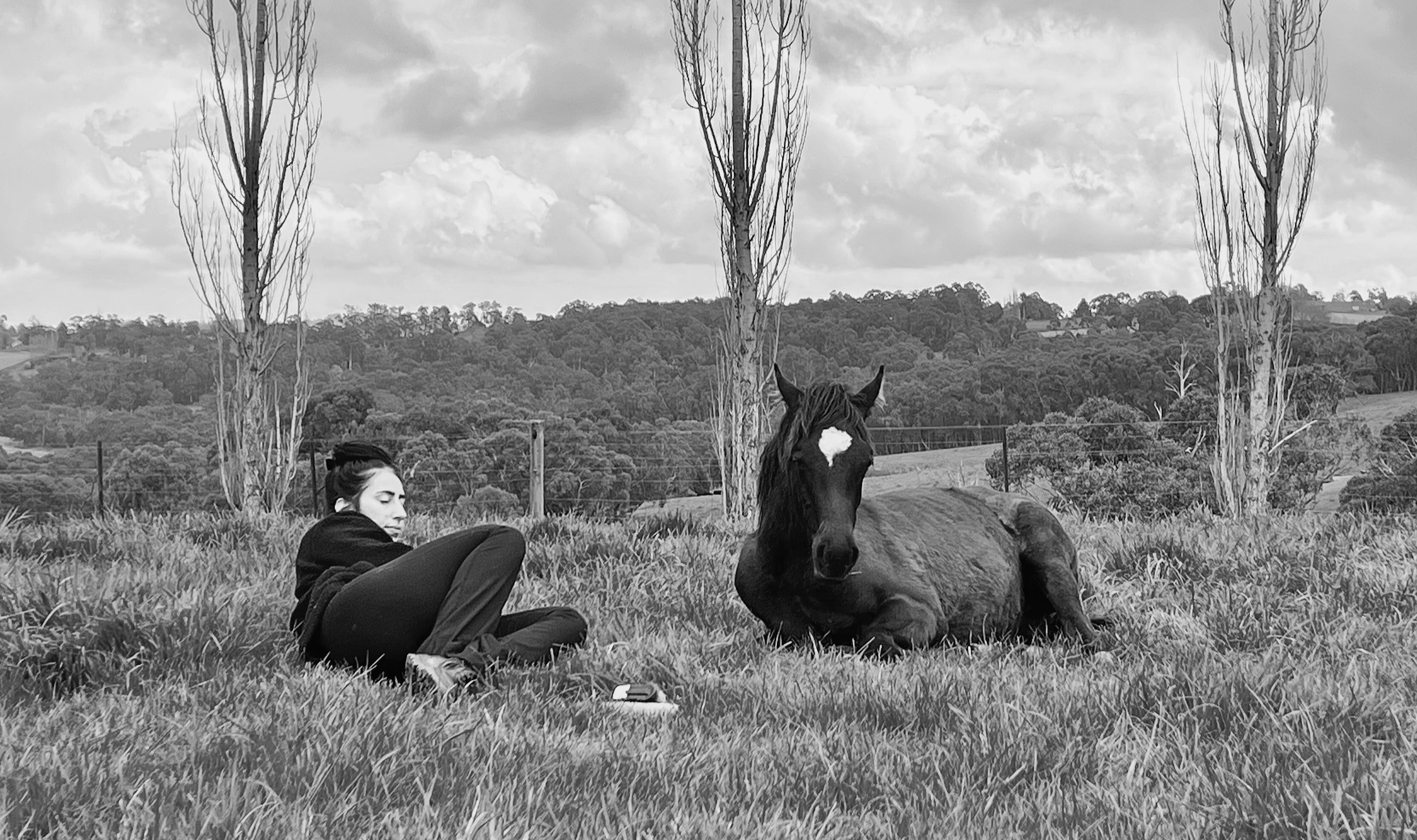
Equine-Assisted &
Nature-Based Therapy
Equine-Assisted & Nature-Based Therapy
Kangaroo Ground, VIC – $150/hour, NDIS reclaimable
This experiential therapy integrates the relational presence of horses and the grounding influence of nature. Guided by evidence-based, trauma-informed practices, sessions support emotional regulation, resilience, and inner transformation.
Equine-Assisted Therapy is ideal for:
- Emotional regulation and self-awareness
- Stress, anxiety, and trauma recovery
- Building trust, connection, and confidence
- People who benefit from experiential and relational approaches
Limited concession rates available upon discussion.
-
$150/hour
Nature-based, Equine-Assisted Therapy for children and adults (4+) with learning disabilities and neurodivergence, including ADHD, ASD, and PDA.Available for self-managed & plan-managed participants
Terrain may limit accessibility; please contact us to discuss optionsNature-based, Equine-Assisted Therapy for children and adults (4+) with learning disabilities and neurodivergence, including ADHD, ASD, and PDA.
Available for self-managed & plan-managed participants
Terrain may limit accessibility; please contact us to discuss options
-
Horses are hyper-sensitive prey animals, whose instinctual nature is fine-tuned to identify every nuance of change in their environment. With a heightened fight or flight response and the biological capability to regulate quickly and respond immediately to external stimuli, horses are able to flick between arousal states with somatic processes and behaviours that help regulate their nervous systems.
As humans are a predator species, horses are highly attuned to our emotions and body language and provide immediate, nonjudgmental biofeedback that helps clients develop self-awareness, emotional regulation, and trust.
Horses are completely nonjudgmental, so they value only how you show up in the present moment, reflecting your current internal processes, whether conscious or unconscious. It is the practitioner’s role to help the client translate these cues and responses and link them to the here-and-now of experience.
The unique relational presence that horses provide, and the rich metaphorical content they often bring to a session can help clients access deeper emotional processes and insight than traditional room-based therapy. The mindfulness that often comes with spending time animals in nature assists clients in accessing a feeling state and learning more easily to understand their bodily-felt sensations, as they are often magnified in the horses’ body language while they pick up on our subtle cues.
-
Equine-Assisted Learning (EAL) is rooted in developing skills, confidence, and problem-solving, and facilitators don’t need to be mental health professionals but they must be equine specialists. It is non-clinical, acknowledging that material may present itself in session, however, EAL doesn’t go deep into processing or integrate clinical theory. Activities often include mindful grooming, grounding exercises, obstacle courses and experiential learning. EAL is often aimed at children, corporate teams and groups for team building, leadership programs and at-risk youth.
Equine-Assisted Psychotherapy (EAP) has many similar attributes to EAL but delves deeper into the processing of emotional material, with a focus on healing and growth, addressing mental health struggles and relational challenges, as well as early-stage resourcing for those with PTSD and C-PTSD. The therapy component maintains an integrative approach, combining psychoeducation and interventions with equine interactions. EAP is led by licensed mental health practitioners who are also equine specialists, and contains a lot of EAL principles, particularly in early sessions whilst relationships are being formed and trust is built. EAP can be beneficial for trauma survivors, addressing various mental health concerns, attachment difficulties, and building resilience and emotional awareness in children with learning disabilities such as ADHD, ASD, and PDA profiles.
Book a 15 minute Consultation
Ready to begin your journey towards cultivating the wisdom of your Inner Sense? Send us a message and we’ll get back to you to organise a free 15 minute consultation.


